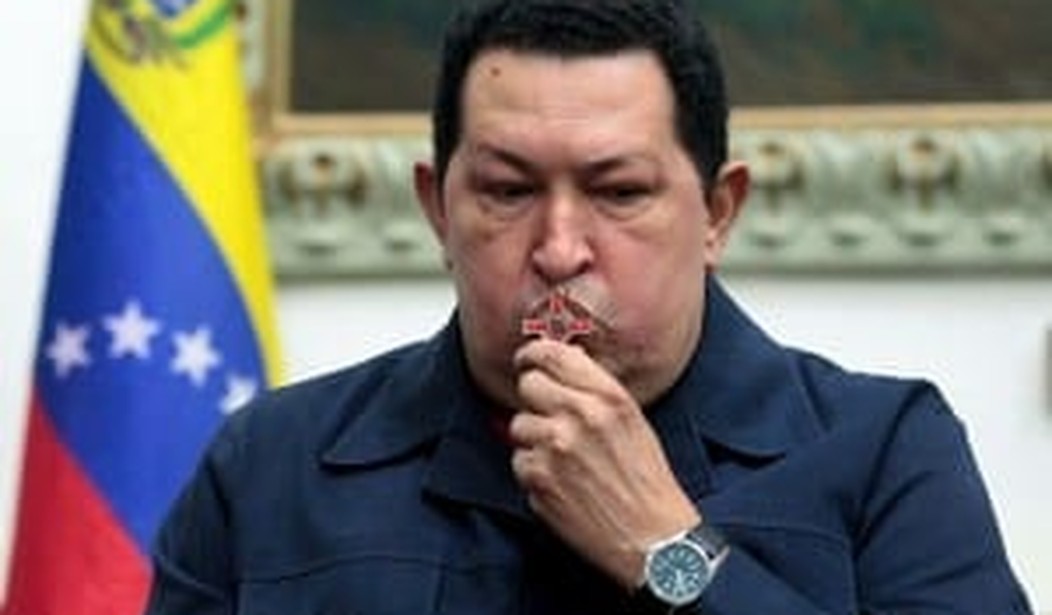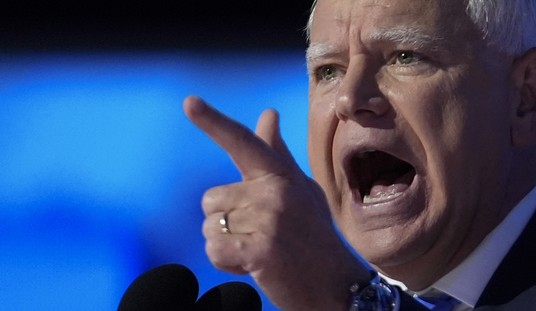When Hugo Chavez opponent Cardinal Ignacio Velasco died in 2003, the Venezuelan strongman declared the pro-democracy cleric was “in hell.”
At Velasco’s wake, Chavez’s flock brandished pictures of the cardinal with devil horns and hurled stones while chanting Chavista slogans.
After all, Velasco had committed a cardinal sin in the eyes of the autocrat: questioned Chavez’s self appointment as supreme being and urged the people to embrace democracy and human rights instead of the Simon Bolivar fanboy.
“Every day we turn another cheek. I have no cheeks left because every day there is a new insult,” Velasco said of his nemesis the year before he died.
The cardinal was succeeded in Caracas by Rosalio Castillo Lara, who was equally vilified by Chavez for using his influential post — governed by the Vatican, not by the Bolivarian thought factory — to note “the only solution is democratic, which must involve the resistance of all the people.”
“If the Venezuelan people fail to grasp the seriousness of the situation and fail to categorically speak out in favor of democracy and freedom, we will find ourselves subjected to a Marxist-style dictatorship,” the cardinal said shortly before his death in 2007.
Castillo Lara was once asked if he’d like to give Chavez a blessing. “More than a blessing,” the cardinal responded. “I’d give him an exorcism.”
The current archbishop of Caracas, Jorge Urosa Savino, handily picked up the righteous task of jousting with Chavez. He’s had to battle a movement to splinter off a pro-Chavez, socialist, “reformed” Catholic Church and the declining state of the country as Chavez tried to impose a totalitarian state on the people.
The Chavez regime is “intervening in all of the aspects of the life of Venezuelans in the imposition of a Marxist-communist line,” Urosa told El Universal in 2007.
“If Christ were still alive and physically present, I’m completely sure he’d take them out with whippings,” Chavez said of Urosa and other Church leaders.
“Now this cardinal comes out, because he has been sent here by the dirty ones, the little Yankees, to try to frighten the people by speaking of communism, that communism has arrived,” Chavez said of Urosa. “Listen, he’s a troglodyte.”
“On various occasions the president has offended me verbally, exposing me to public ridicule. I totally reject these aggressions that are unworthy of the one who carries them out,” Urosa said. “Instead of reflecting and pondering the arguments put forth and rectifying his line of conduct, he limits himself to insult and offend.”
Urosa’s criticism extended to Chavez buddy and fellow Latin American left-winger Fernando Lugo and a Mass that was given in the former president’s honor in Paraguay.
“If people wanted to meet with him and pray for him, they should have done so in another place and in other surroundings rather than in a Mass broadcast on television to the entire country,” Urosa said, stressing that “in socio-political matters, priests, deacons and religious should always act as courageous messengers of the Gospel, promoters of justice and peace, firm defenders of human rights, and as fathers and brothers of all the faithful, regardless of their political sympathies.”
It’s fitting that Chavez died as the College of Cardinals began their rulemaking for the papal election, as the Church conflict with Chavez in Venezuela has been a stark reminder of how the religious who rightfully eschew pedestrian political gamesmanship shouldn’t fear tangling with politicians when moral principles and human rights are on the line.
“Marxist totalitarianism permits, to those who occupy high positions in the government, the absolute domination over the rest of the population and this is something that questions the social doctrine of the Church, because it brings about great injustices and the subjection of the people to the government,” Urosa told El Universal in 2010.
Chavez may have liked to dream that all of his Church opponents would rot in hell, but his rule took Venezuela to hell without the return trip.
The murder rate has soared with more annual killings than the U.S. and EU combined. Businesses have been nationalized in Chavez’s grand socialist experiment. Institutions from the judicial and legislative branches of government to a free media and political opposition have all been trampled under his nearly 15 years in office.
The opponents of Chavez didn’t swoon at his torturous hours-long sermons on his Sunday Alo Presidente! show, weren’t impressed by his celebrity visitors from the left of Hollywood, and were repulsed by his cozy relationships with tyrants including Iran’s Mahmoud Ahmadinejad and Syria’s Bashar al-Assad.
When it came down to Chavez’s final days, though, the leader of Venezuela’s Catholics showed that a man not afraid to jump in the ring with a South American tyrant is always, first and foremost, a man of the cloth.
Urosa asked Venezuelans to pray for Chavez at New Year’s, but his message had a clear focus on those whose suffering came at the hands of the regime.
“Pray and work for the weakest, the poor, the sick, in particular for the president. Pray also for the prisoners and in particular political prisoners, for whom we again ask for pardons,” Urosa wrote. “May every one of us be a dedicated and active peacemaker.”









Join the conversation as a VIP Member